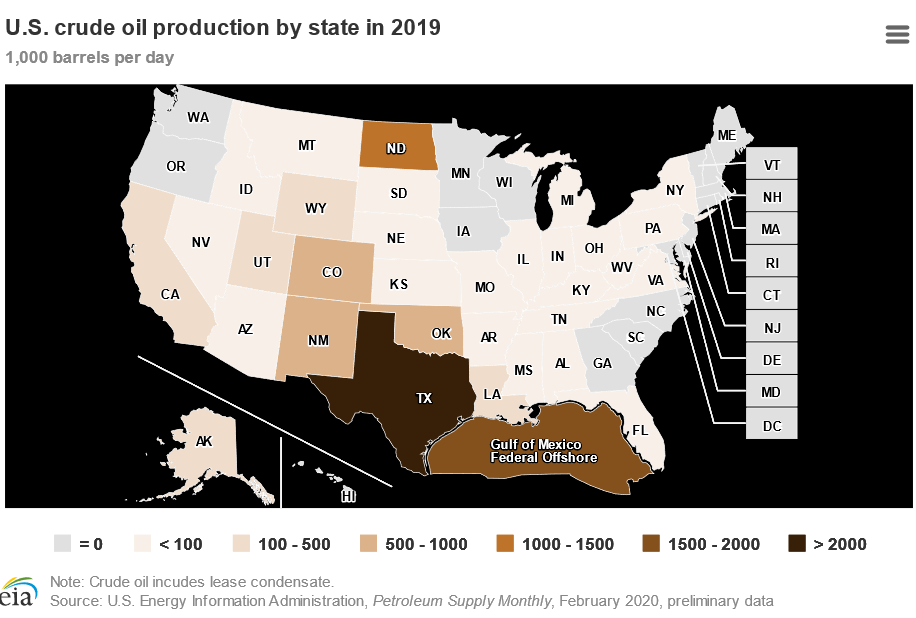The Gulf of Mexico is one of the most beautiful regions of the United States, and it has always been an economic juggernaut, as well. Its vast waters have given life to vibrant fishing, shipping, and tourism industries, employing millions of residents in Texas, Louisiana, Mississippi, Alabama, and Florida. But its economy is perhaps most closely identified with the oil and gas industries as thousands of oil platforms dot the coastlines.

Gulf States, particularly Texas and Louisiana, are deeply proud of their roles in traditional energy production. In some families, careers in energy have often spanned several generations, and that will continue for many more—largely driven by innovation in the energy sector that, with strong federal support, will add millions of additional jobs in Gulf states.
The region is evolving as an object lesson in the “all of the above” approach to energy. Not only is the Gulf Coast the nation’s top oil producer, its states are also leading on cleaner-burning natural gas, wind power, and solar energy generation as well as boasting one of the most promising areas for the emerging offshore wind energy industry. This region has always powered our country, and its conservative leaders recognize that it can also be the standard bearer for Clean Energy Forward.
U.S. Senator John Cornyn (R-TX) certainly understands that value; he is one of the most prominent conservative voices supporting both traditional energy and clean energy. This was most recently demonstrated in the senator’s introduction of the Launching Energy Advancement and Development through Innovations for Natural Gas (LEADING) Act, which would incentivize research and development of carbon capture technology for natural gas to ensure a reliable, affordable and environmentally sound energy supply.
Neighboring Louisiana accounts for nearly one-fifth of the nation’s oil refining capacity, but its residents are also concerned with coastal erosion. That’s why U.S. Representative Garett Graves (R-LA) has emerged as a leader among Republicans on the importance of addressing climate change while maintaining America’s economic competitiveness. He was chosen to serve as the top Republican on the U.S. House Select Committee on the Climate Crisis. His appointment reflects his ability to build bridges within the Republican Conference and with Democrats on meaningful solutions.
Low-lying Florida is acutely aware of the dangers of climate change, including flooding, and Floridians also recognize that clean energy will be a key part of the state’s economic future as the Florida Department of Economic Opportunity projected solar jobs to grow by over 60% by 2026.
Fortunately, Florida has several powerful conservative voices concerned with solving the problem in a way that helps both the environment and the economy. U.S. Senator Marco Rubio (R-FL), for example, serves on the new Senate Climate Solutions Caucus. In the House, Florida’s Gulf Coast has impressive leadership from both U.S. Representative Matt Gaetz (R-FL), who authored the “Green Real Deal” (the GOP response to the Democrats’ misguided Green New Deal), and U.S. Representative Vern Buchanan (R-FL), who introduced the Energy Storage Tax Incentive and Deployment Act.
Although his district is located on the state’s Atlantic Coast, U.S. Representative Brian Mast (R-FL) is another prominent conservative voice from Florida leading on this issue as a member of the House Transportation and Infrastructure Committee and House Climate Solutions Caucus.
The Gulf States have been hit hard by the pandemic, but this region is full of resilient people who are unfortunately used to rebuilding after disasters like hurricanes. They will rebound, and their conservative leaders know clean energy development and energy innovation should be an important part of that. An all-of-the-above approach to energy is the principal reason the United States has been able to grow its economy and reduce carbon emissions more than any other country over the past decade, and it’s the key to get hard working Americans back to work and revitalizing the Gulf Coast.

